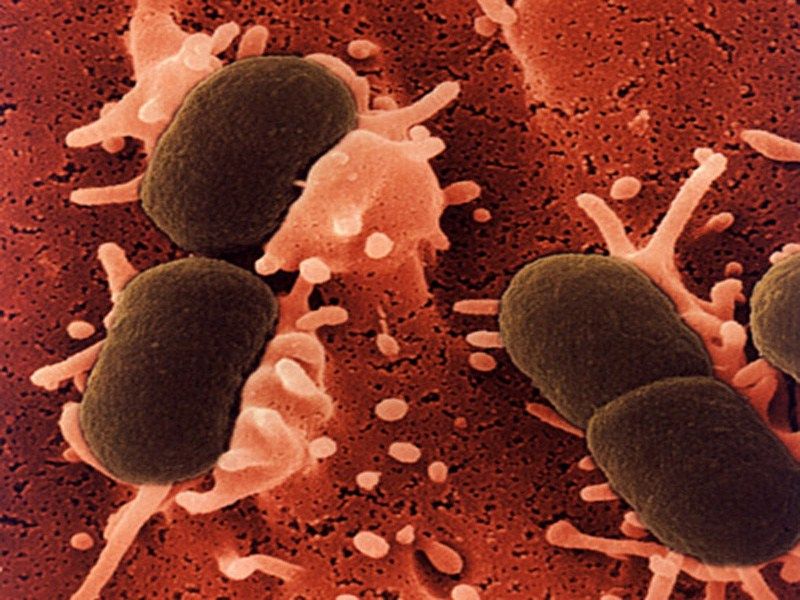E. coli infection is an intestinal illness caused by E. coli or Escherichia coli bacterium usually lives in the gut of the warm-blooded organisms like humans and animals. While most of the varieties of E. coli are harmless and help in keeping the digestive tract healthy, some of them are especially bad and powerful strains like E. coli O157:H7 and can cause intestinal infection. This strain and other such bad strains that produce toxins are called “Shiga toxin-producing E. coli” or STEC. The toxin impairs the lining of intestine.
The exposure to contaminated food and polluted drinking water especially raw vegetables and undercooked ground beef can cause the E. coli infection. So proper food preparation and good hygiene can reduce the chances of developing the infection. And majority of its cases can be resolved at home.
The healthy adults typically recover from the infection within a week but it can be life-threatening in infants and immunocompromised people. It leads to symptoms like vomiting, abdominal cramps and bloody diarrhea and happens to be the major cause of acute form of kidney failure called hemolytic uremic syndrome in the children.
While people mostly link E. coli with food poisoning, you can also be susceptible to pneumonia, breathing problems and urinary tract infections from different kinds of bacteria. Moreover, 75-95% of urinary tract infections are due to E. coli.
Let’s know more about its causes, symptoms, complications, diagnosis, treatment and preventions.
Causes & Risk Factors
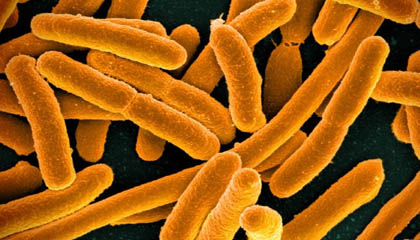
While most E. coli strains are harmless, certain strains of E. coli especially 0157:H7 produce powerful toxins which can make the humans sick and cause damage to the lining of their small intestine.
The humans can catch this infection through various mediums including:
-
Drinking contaminated water from untreated tap water and municipal supplies is the major cause of some E.coli outbreaks. This is why it is categorized among the list of waterborne disease. Private wells, some lakes and swimming pools can also be the sources of infection.
-
Person-to-person contact can spread the infection from an infected person to other.
-
Eating contaminated food particularly uncooked ground beef, unpasteurized milk, juice, cider, or cheese, alfalfa sprouts or raw vegetables can be another possible cause of infection.
-
Coming in contact with animals found in farms, petting zoos and fairs.
And some people are more likely to become affected by E. coli infection including:
-
Young children and older adults are at a higher risk of developing serious illness and complications.
-
The patients who have lower levels of stomach acid either because of stomach surgery or medicines that lower stomach acid are at a higher risk of infection.
-
People traveling to developing countries where some water sources may be unsafe for drinking, washing vegetables or making ice.
-
Immunocompromised people including AIDS patients and people taking chemotherapy or immunosuppressive medications are more vulnerable to complications.
-
The infection is more likely to occur in summer seasons (June to September) for unknown reasons.
-
Uncooked meat and pasteurized milk or juices can cause infection
Signs & Symptoms
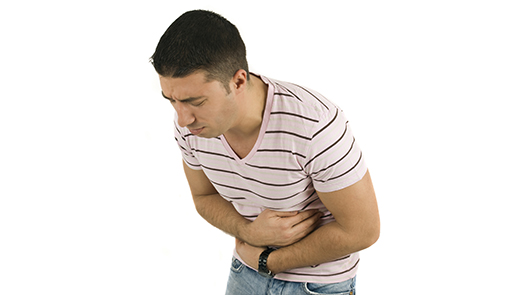
The signs and symptoms of E. coli intestinal infection usually appear 3-4 days after exposure to the bacteria. They may even appear as early as one day or as late as a week later.
The common symptoms include:
- Watery diarrhea that starts a few hours after the pain is experienced
- Nausea and sometimes vomiting
- Abdominal pain or severe cramping that often starts suddenly
- Bright red bloody stools about a day later due to the toxin’s damage to intestines
- Fever
- Fatigue because of dehydration and fluids/electrolyte loss
Some people may not show clear symptoms but they can spread the infection to others. In severe cases, these symptoms may lead to bloody diarrhea, dehydration or even kidney failure.
Complications
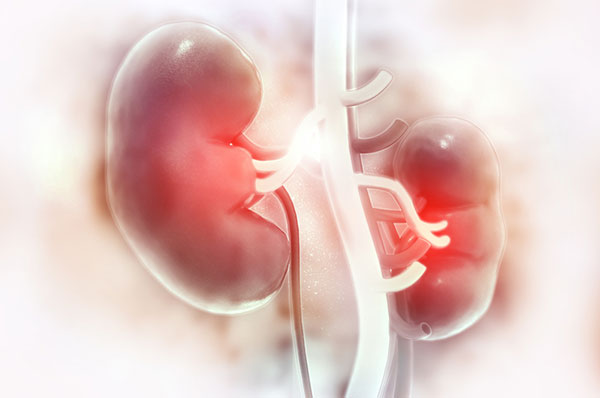
Though many people recover completely within a week, certain people who have weakened immune system as well as the young children, older adults are at high risk of developing complications. However, nearly 10% people are at risk of developing hemolytic uremic syndrome (HUS).
Some other kinds of E. coli infection can result in urinary tract infections, respiratory illness, pneumonia and other illnesses like meningitis.
In the HUS, hemolysis or rupture of red blood cells occurs. The platelets may form a clump inside the small blood vessels of kidneys and result in reduced blood flow or ischemia. The people with such clots may also develop problems related to central nervous system (CNS), affecting the brain and spinal cord. The risk of bleeding problems may increase due to decreased platelets. Such a situation may eventually lead to acute kidney failure.
This condition mostly begins after the onset of diarrhea. This is a medical emergency and hospital treatment would be required. Coma, paralysis, brain swelling and seizures may be other complications. In rare 3-5% cases, the E. coli infection is fatal.
Diagnosis
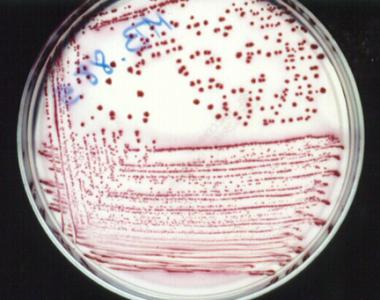
Your doctor will ask and identify about the signs and symptoms. He or she will send your stool sample for a laboratory test analysis. For the diagnosis of illness, your stool sample will be checked for the presence of E. coli bacteria. In order to confirm the diagnosis, the bacteria may be cultured and specific toxins will be identified. Also, this sample should be taken within 2 days after the onset of bloody diarrhea.
Treatment
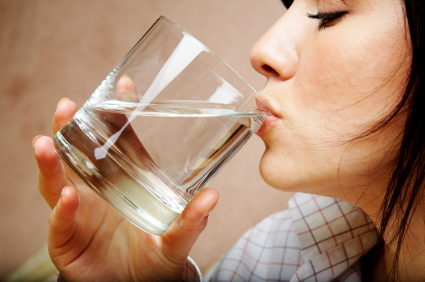
As of now, there’s no way to relieve symptoms, prevent complications or provide cure for the E. coli infection. The illness usually resolves by itself. Antibiotics are not recommended as they may further the risk of HUS.
It’s crucial to take enough rest and drink plenty of fluids to prevent dehydration and fatigue. Also, over-the-counter (OTC) medications for diarrhea are not advised as they might slow down the digestion and reduce the body's ability to remove toxins efficiently.
In a severe case of E. coli infection like hemolytic uremic syndrome, hospitalization and supportive care would be required and IV fluids, blood transfusions and kidney dialysis might be given.
Preventive Measures
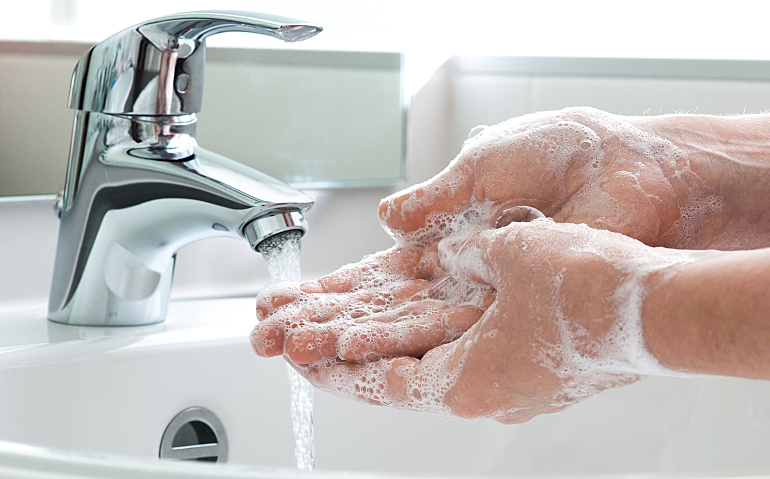
Certain important preventive measures of E. coli infection include:
- Drink pasteurized cider, milk, apple juice and others rather than unpasteurized
- Cook meat well particularly ground meat
- Washing utensils, knives, cutting boards, countertops and others with hot soapy water before and after cooking or when they come in contact with fresh produce or raw meat
- Maintain good hygienic practices while cooking and otherwise
- Make sure you wash vegetables especially leafy green vegetables
- Store meat and non-meat foods separately and use separate cutting boards for different purposes
- Keep good hand hygiene and this would involve washing hands well using warm water and soap regularly especially before & after food preparation and after using bathroom, handling raw meat, contact with animals and changing diapers.
Image Source:
1. cat-worldclearfection
2. clearfection
3. carlosslim
4. medscapestatic
5. netdna-ssl
6. unitedconcordia
